| |
| |
| |
| Presented By Pratt & Whitney |
| |
| Axios World |
| By Dave Lawler · Sep 26, 2022 |
| Welcome back to Axios World. - Tonight's edition (1,838 words, 7 minutes) begins in Russia, with stops in Italy, Cuba, Libya, and more.
Situational awareness: Former President Luiz Inácio Lula da Silva leads President Jair Bolsonaro 48% to 37% in a new poll from FSB Pesquisa ahead of Sunday's election in Brazil. If both candidates fall short of 50% there will be a runoff on Oct. 30. |
| |
| |
| 1 big thing: Russia's mobilization drive devolves into chaos |
 |
|
| A protester is detained in Novosibirsk, Siberia. Photo: Rostislav Netisov/AFP via Getty Images |
| |
| The Kremlin acknowledged "errors" Monday in its drive to mobilize 300,000 men to fight in Ukraine, as backlash grows in far-flung provinces and even on state TV. Driving the news: At least 20 military recruitment offices have been torched, per Moscow Times. A recruitment officer was shot point blank and left critically injured on Monday in Irkutsk, Siberia. - Meanwhile, stories of men being handed draft papers who don't fit the criteria for mobilization — many because they're far too old — have been widely shared online.
- Prominent state TV host Vladimir Solovyov berated the "idiots" failing to properly implement Putin's orders, while RT chief Margarita Simonyan warned that such commanders were "toying with armed people."
- Both also lamented that some recruits were being given inadequate equipment.
What they're saying: Kremlin spokesperson Dmitry Peskov said Monday that "all the errors will be corrected." The government has also been emphasizing that draftees will be paid well and won't lose their civilian jobs. - Peskov also said no decision had been made on whether to close Russia's borders with neighboring countries to keep potential recruits in.
The latest: At the border with Georgia, the line of cars — many likely containing military-age men — can be seen from space. Flights to countries like Turkey that still allow visa-free travel from Russia have sold out or spiked dramatically in price. - Russia's Baltic neighbors say they'll turn back Russians fleeing the draft, arguing they should stay and oppose their government.
- At least some of those drafted have been told they'll be sent to Ukraine after just two weeks of training, per the WSJ. Military analysts have raised questions about what that will mean for the morale and effectiveness of combat units.
- Ukrainian President Volodymyr Zelensky told CBS News that Putin's order was an admission that "he knows that he's losing the war."
Between the lines: The mobilization order may have been one of the biggest political gambles of Putin's career. But while its execution has been chaotic, it's clear he's trying to reduce the risk to the regime, says Greg Yudin, a sociologist at the Moscow School of Social and Economic Sciences. - Yudin notes that men from ethnic minority backgrounds and/or rural areas are far more likely to be mobilized than those in major cities, particularly Moscow.
- Putin "tries not to antagonize the groups that might be able to organize" against him, Yudin writes. Many of the photos and videos of large groups of men being rounded up for service have come from Siberia.
- In Dagestan in the North Caucasus, which has already reportedly suffered disproportionate casualties in Ukraine, the mobilization order sparked demonstrations and clashes with security forces. "Why are you taking our sons?" one woman demanded of a police officer.
Meanwhile, the referenda staged by Russian authorities in four regions of Ukraine, which have been labeled a "sham" by most Western governments, are due to conclude tomorrow. - Asked whether the territories will be brought under Russia's nuclear umbrella if annexed into Russia, Foreign Minister Sergei Lavrov said they'd have Moscow's "full protection."
- Zelensky said annexing Ukrainian territory would make a diplomatic deal impossible.
Worth noting: Kazakhstan, one of Moscow's key allies, said Monday that it won't recognize the referenda, underscoring how little international legitimacy annexation would have. More headlines: |
    |
| |
| |
| 2. Europe's nationalists rebrand, and win |
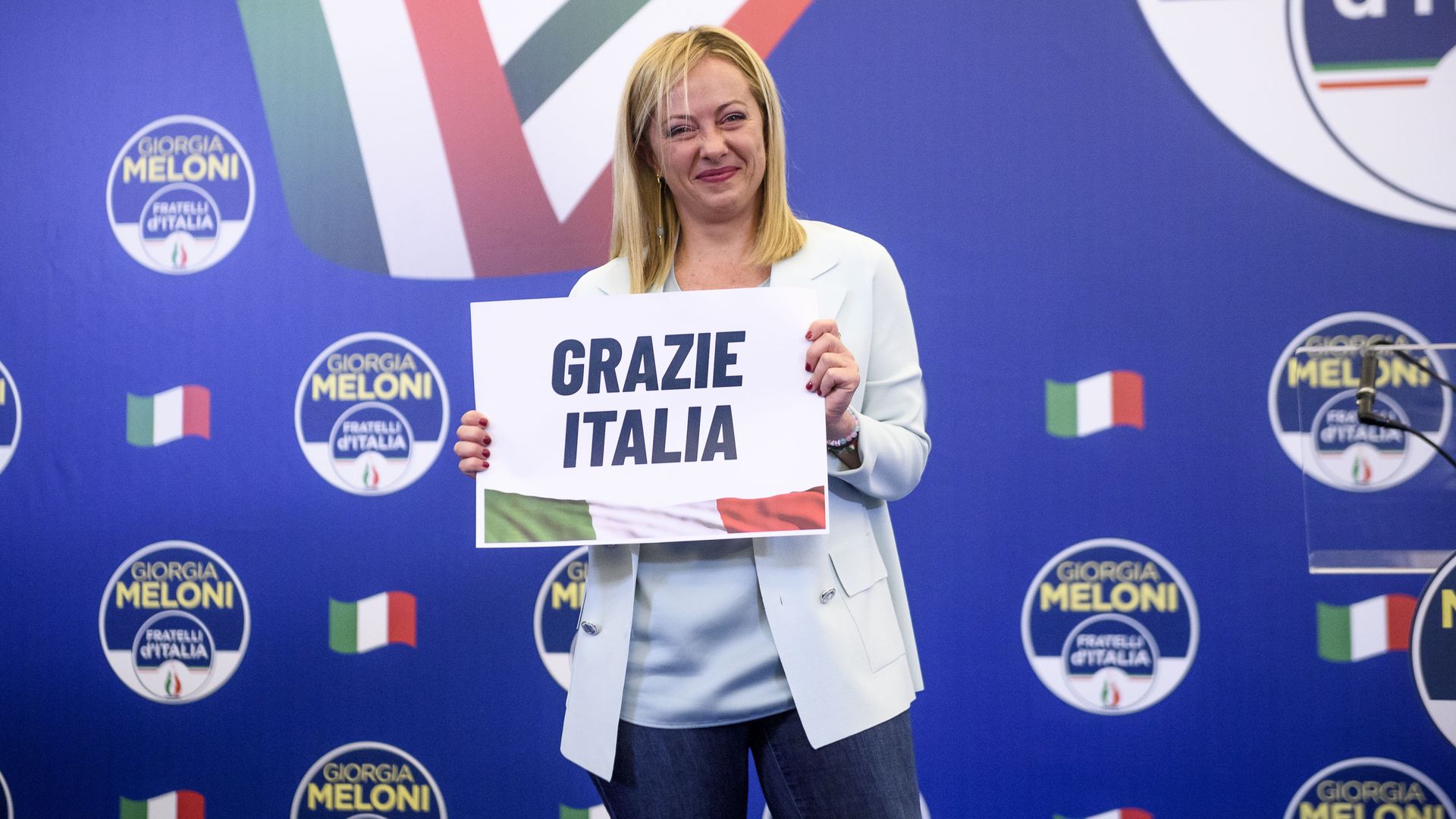 |
|
| Giorgia Meloni celebrates her victory. Photo: Antonio Masiello/Getty Images |
| |
| Sunday's victory for Giorgia Meloni's Brothers of Italy underscored the anti-incumbency sentiment in Europe, and the ability of formerly fringe parties on the continent to detoxify their brands. The big picture: The election came two weeks after the far-right Sweden Democrats stormed their way to a second-place finish in a shock result that will force the long-ruling Social Democrats from power. - While Meloni's party traces its roots back to neo-fascist supporters of Benito Mussolini, she has brushed off her past praise for Il Duce and branded herself as a mainstream conservative who will be tough on Moscow and reasonable with Brussels.
- Likewise, the Sweden Democrats have expelled extremists and disavowed the party's past links to white nationalism. Marine Le Pen has carried out a similar re-brand in France, and her National Rally (formerly National Front) finished second in this year's presidential and parliamentary elections.
- All three parties have sought to broaden their appeal to a wider spectrum of the electorate while retaining hardline positions on immigration. While they've moved toward the center, voters have also moved toward them and away from mainstream alternatives.
What to watch: The Brothers of Italy was the only major party to refuse to serve in a national unity government under Mario Draghi, and thus well positioned to run as genuine outsiders. - The party's jump from 4% to 26% in the polls has put Meloni in a position to become prime minister. Her right-wing bloc collectively won clear majorities in both houses of Parliament.
- Analysts expect her to place respected figures in key ministries, particularly finance, to placate the markets and the EU. But she'll have to adeptly manage the tricky transition from outsider to incumbent if her government is to last longer than its recent predecessors.
|
    |
| |
| |
| 3. Global news roundup |
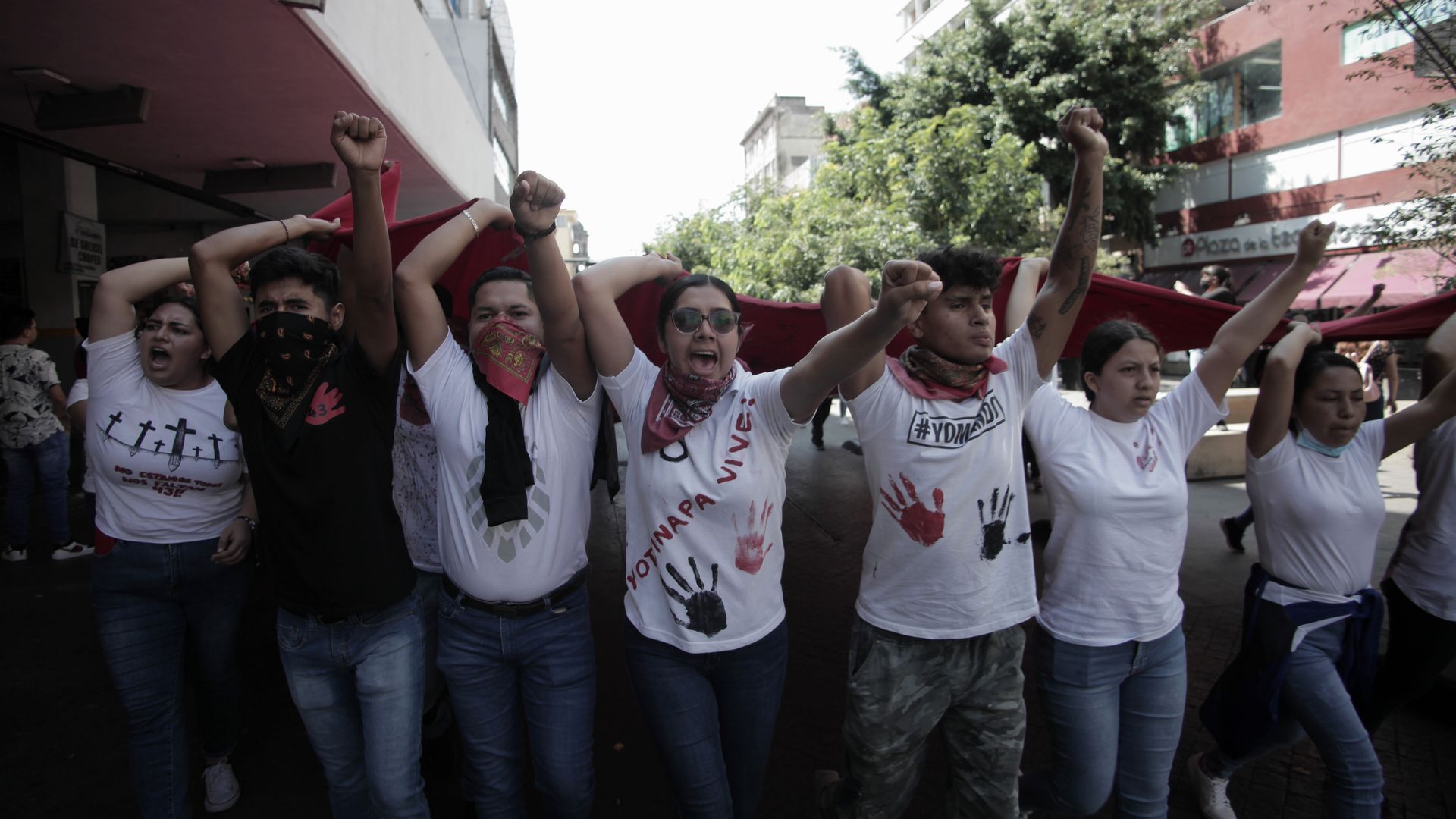 |
|
| Students in Guadalajara, Mexico, marched today to commemorate the anniversary of the disappearance of the 43 Ayotzinapa students eight years ago. Photo: Leonardo Alvarez Hernandez/Getty Images |
| |
| Axios' Laurin-Whitney Gottbrath rounds up the latest headlines: 1. Cuban voters yesterday overwhelmingly approved same-sex marriage and adoption in a government-backed referendum on a new "family code" that also promotes the rights of women, children, and the elderly. - Flashback: LGBTQ Cubans were persecuted by the Cuban government in the 1960s and 1970s, with openly gay men sent to forced labor camps, per CNN.
2. The Bank of England said today it won't hesitate to hike rates after the pound plummeted to an all-time low against the dollar, Axios' Macro co-author Courtenay Brown writes. - Why it matters: The markets are wary that the new government's tax-cutting spree is fiscally unsustainable and may stoke already-soaring inflation.
3. Hundreds of women in the Kurdish-controlled Syrian town of Qamishli protested today over the death of an Iranian Kurdish woman in police custody in Iran, Reuters reports. In extreme weather news... - In the Philippines, at least eight people, including five rescuers, were killed when Typhoon Noru swept through the country, flooding villages and knocking out power, per AP.
- In Japan, a least two people were killed when Typhoon Talas slammed the central part of the country this weekend, Reuters reports.
- In the Caribbean, Hurricane Ian continued to strengthen as it approached western Cuba today. It's expected to bring a life-threatening storm surge to the island nation this evening before moving north towards Florida's western coast.
|
    |
| |
| |
| A message from Pratt & Whitney |
| The F135 EEP is the right choice — here's why |
| |
 |
| |
| The F135 Enhanced Engine Package (EEP) can deliver the needed capability for Block 4 aircraft faster, cheaper and with less risk than a new, unproven engine. - F135 EEP can also cover power and thermal management system growth to the maximum capability of the F-35 combat aircraft.
Get the details. |
| |
| |
| Bonus: Where in the World? |
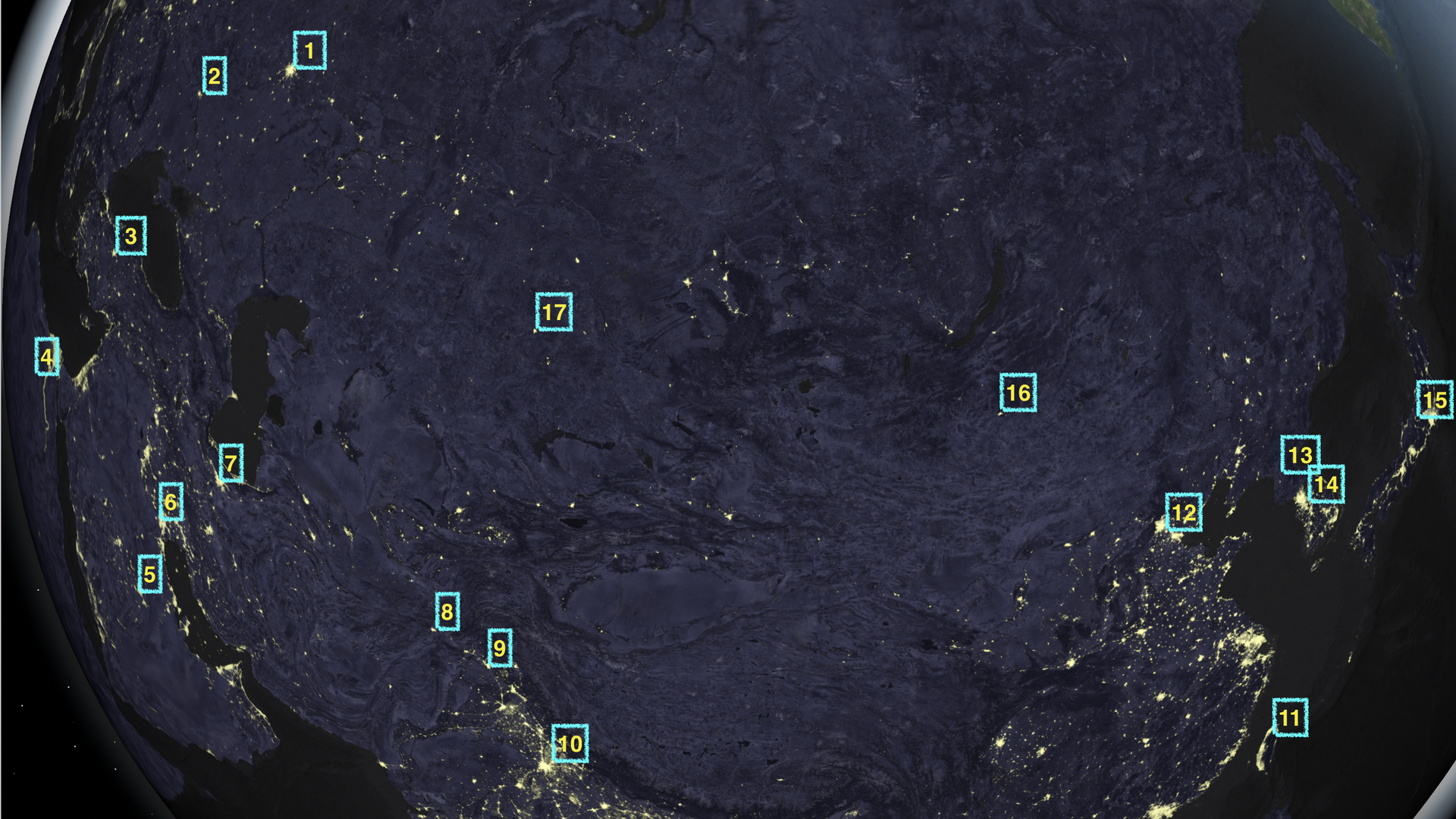 |
|
| Screengrab via Apple Maps |
| |
| Can you name all 17 capital cities above, as seen at night from space? A few observations: - The vastness and emptiness of Siberia never ceases to amaze.
- It's striking how close 13 and 14 are on the map, and how one shines so brightly while the other hardly registers.
- 3-17 are all spending a lot of time thinking about what's going on between 1 and 2.
Scroll to bottom for answers. |
    |
| |
| |
| 4. Ukraine's top general, in profile |
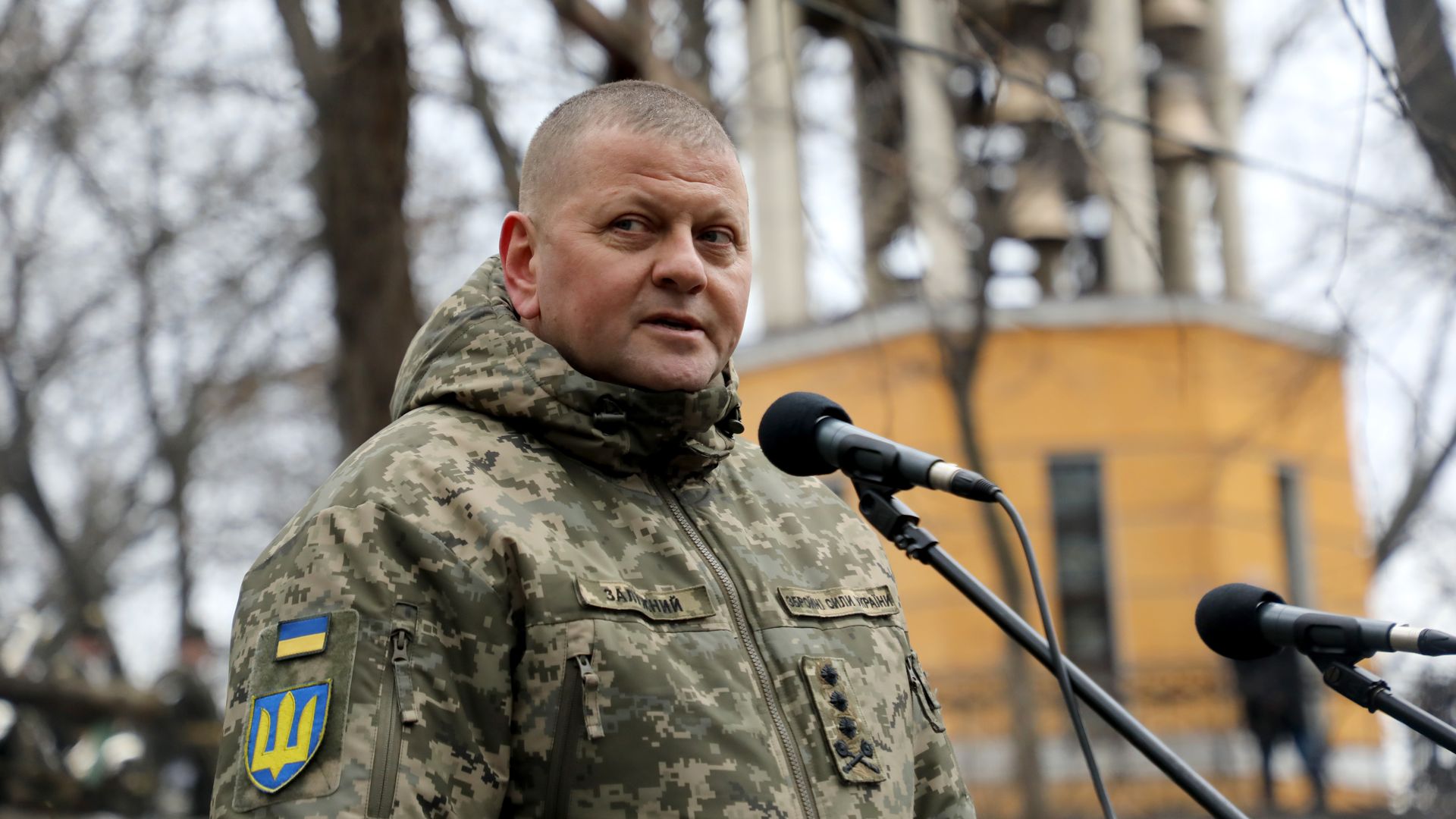 |
|
| Gen. Valerii Zaluzhny. Photo: Yuliia Ovsiannikova/Ukrinform via Getty Images |
| |
| Ukrainian Gen. Valerii Zaluzhnyi was having a beer at his wife's birthday party in July 2021 when he stepped out to take a call from aides to President Volodymyr Zelensky. In his first interview since the invasion began, Zaluzhnyi tells TIME's Simon Shuster and Vera Bergengruen that his response to being asked to command Ukraine's military was, "What do you mean?" - Zaluzhnyi had commanded Ukrainian troops in the Donbas war, but was relatively young at 48 and known as "a bit of a goofball," they write.
- But he was also part of a new generation of Ukrainian generals, schooled in Soviet and Russian tactics — he keeps the collected works of his Russian counterpart, Gen. Valery Gerasimov, in his office — but transitioning to NATO-style decision-making, with commanders in the field given more discretion.
- When Zelensky was elected and Zaluzhnyi tasked with briefing him on operations in Donbas, the general says his view was that the president "doesn't need to understand military affairs any more than he needs to know about medicine or bridge building." To his surprise, Zelensky agreed.
Zelensky trusted Zaluzhnyi to handle preparations for an invasion. His strategy was "to allow the Russians to advance and then destroy their columns in the front and supply lines in the rear," the authors write. - "We needed to knock down their desire to attack," Zaluzhny says. "We also needed to show our teeth."
- The Russian response shocked him. "They just herded their soldiers into the slaughter. They chose the scenario that suited me best of all."
His bottom line: "Knowing what I know firsthand about the Russians, our victory will not be final. Our victory will be an opportunity to take a breath and prepare for the next war." Dive in. |
    |
| |
| |
| 5. From the Axios files |
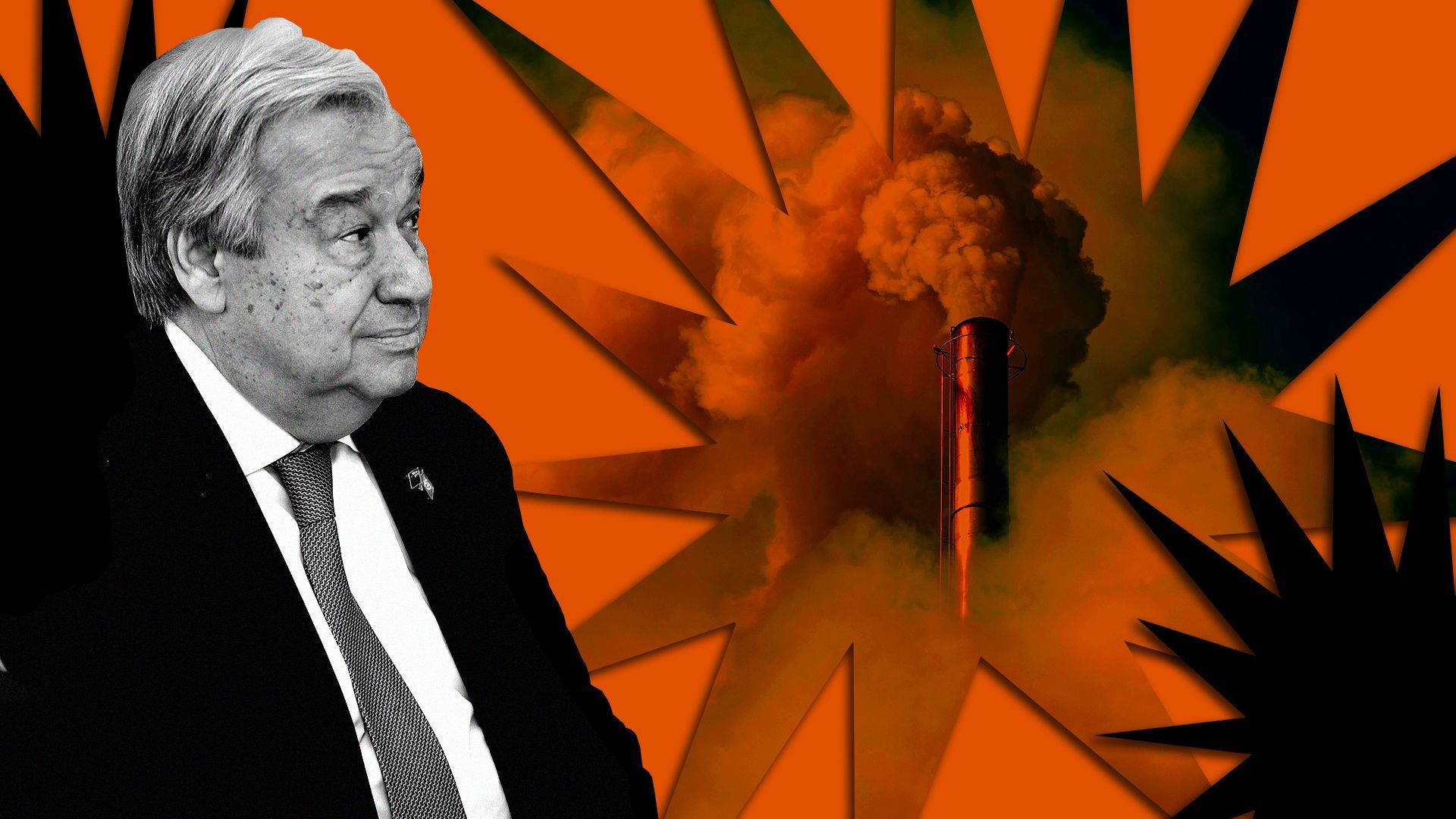 |
|
| Photo illustration: Annelise Capossela/Axios. Photo: Mark Baker-Pool/Getty Images |
| |
| 1. The UN General Assembly this week gave hints of a coming clash between developing nations and the industrialized world over how to compensate vulnerable nations that are being hit hardest by climate change, Axios' Andrew Freedman writes. - What to watch: "Loss and damage" will likely be a central focus of November's COP27 climate summit in Egypt, but the idea of paying compensation is highly fraught for countries like the U.S.
2. China's support for Russia in the war in Ukraine has disappointed many Ukrainians, parliamentary member Oleksandr Merezhko tells Axios' Bethany Allen-Ebrahimian. - What he's saying: China amplifies Russian propaganda and has "done nothing at all" to pressure Russian President Vladimir Putin to withdraw his troops, Merezhko said. "It's an ally of our enemy. And [China] is a very cynical force, which absolutely doesn't care about anything except for its own interests."
3. The island nation of Barbados is taking advantage of the market downturn by buying back its own debt at a discount and using the substantial savings to protect its ocean, Axios' Felix Salmon writes. - The new "blue bonds" are popular among impact investors.
|
    |
| |
| |
| 6. What I'm reading: A story of family and revolution |
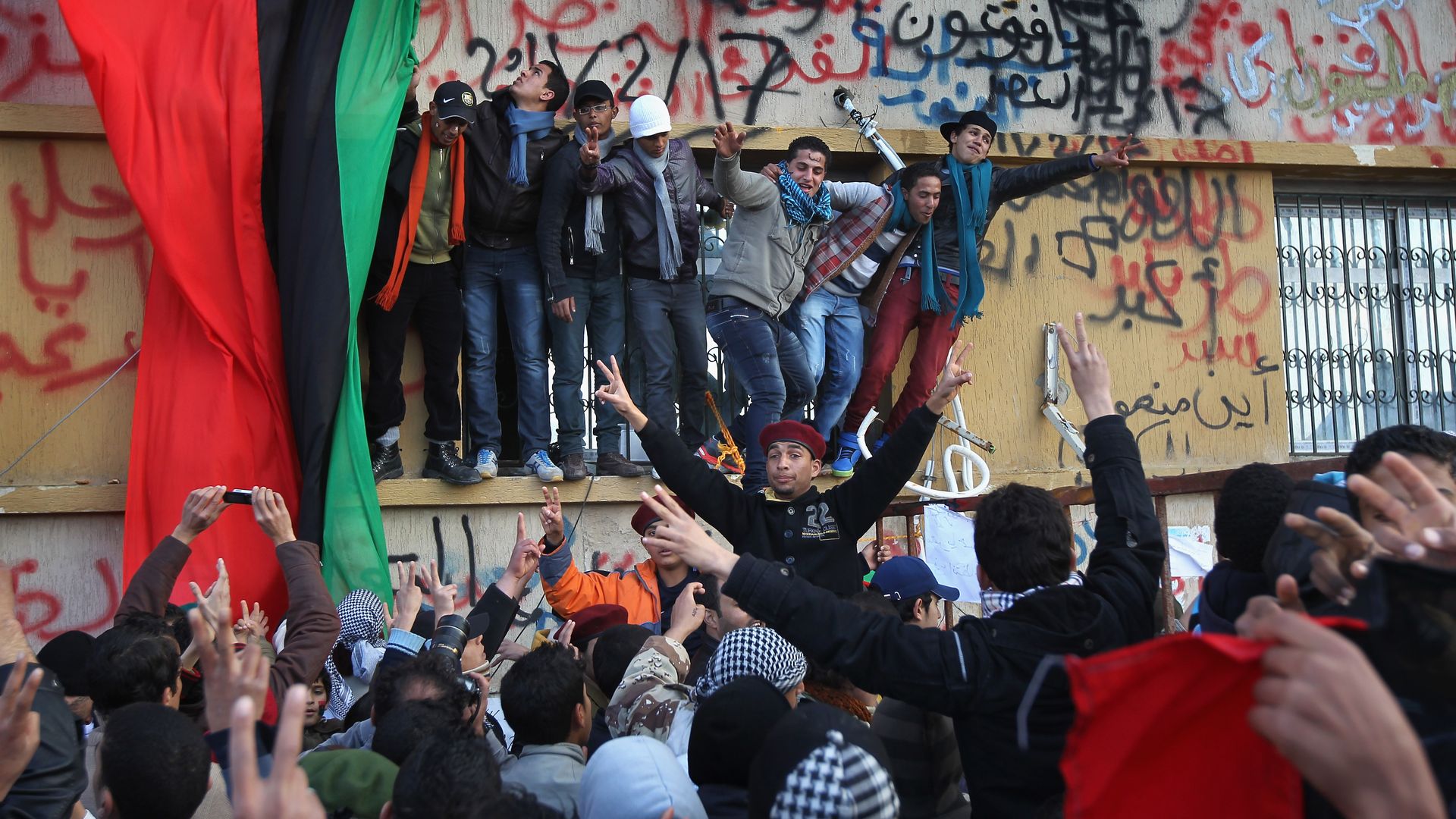 |
|
| A scene from the liberation of Benghazi in 2014. Photo: John Moore/Getty Images |
| |
| Hisham Matar's memoir "The Return" may be the best book I've read this year. - An exiled novelist and the son of a Libyan opposition leader jailed under Muammar Gaddafi, Matar returns to Libya immediately after the 2011 revolution to piece together the history of his family and his country.
- It won a Pulitzer in 2017, so I'm hardly the first to recommend it, but it's particularly poignant in light of the decade of chaos and uncertainty Libya has faced since Gaddafi fell.
I know World readers are always hungry for book recommendations. Hit reply if you've got one. |
    |
| |
| |
| 7. Stories we're watching |
 |
|
| Taking a rest among the coconuts in Yangon, Myanmar. Photo: Sai Aung Main/AFP via Getty Images |
| |
- U.S. seeks to expand internet access in Iran amid protests; Iran says internet crackdown will continue
- Canada to drop all COVID-19 travel and border restrictions
- Biden may try to oust World Bank head
- Biden to host Macron for first state visit of his admin
- 70+ people fleeing Lebanon die after boat sinks
- "Blood on your hands" if world stops tackling COVID: WHO official
- Putin grants citizenship to Edward Snowden
Quoted: "Perhaps the only thing that has changed is that as a result of his Russian citizenship, apparently now he may well be conscripted to fight in Russia's war in Ukraine." — State Dept. spokesperson Ned Price on Edward Snowden |
    |
| |
| |
| A message from Pratt & Whitney |
| The F135 EEP is the right choice — here's why |
| |
 |
| |
| The F135 Enhanced Engine Package (EEP) can deliver the needed capability for Block 4 aircraft faster, cheaper and with less risk than a new, unproven engine. - F135 EEP can also cover power and thermal management system growth to the maximum capability of the F-35 combat aircraft.
Get the details. |
| |
| Answers: 1. Moscow; 2. Kyiv; 3. Ankara; 4. Cairo; 5. Riyadh; 6. Baghdad; 7. Tehran; 8. Kabul; 9. Islamabad; 10. New Delhi; 11. Taipei; 12. Beijing; 13. Pyongyang; 14. Seoul; 15. Tokyo; 16. Ulaanbaatar; 17. Astana/Nur Sultan. |
 | | Are you a fan of this email format? It's called Smart Brevity®. Over 300 orgs use it — in a tool called Axios HQ — to drive productivity with clearer workplace communications. | | |













No comments:
Post a Comment